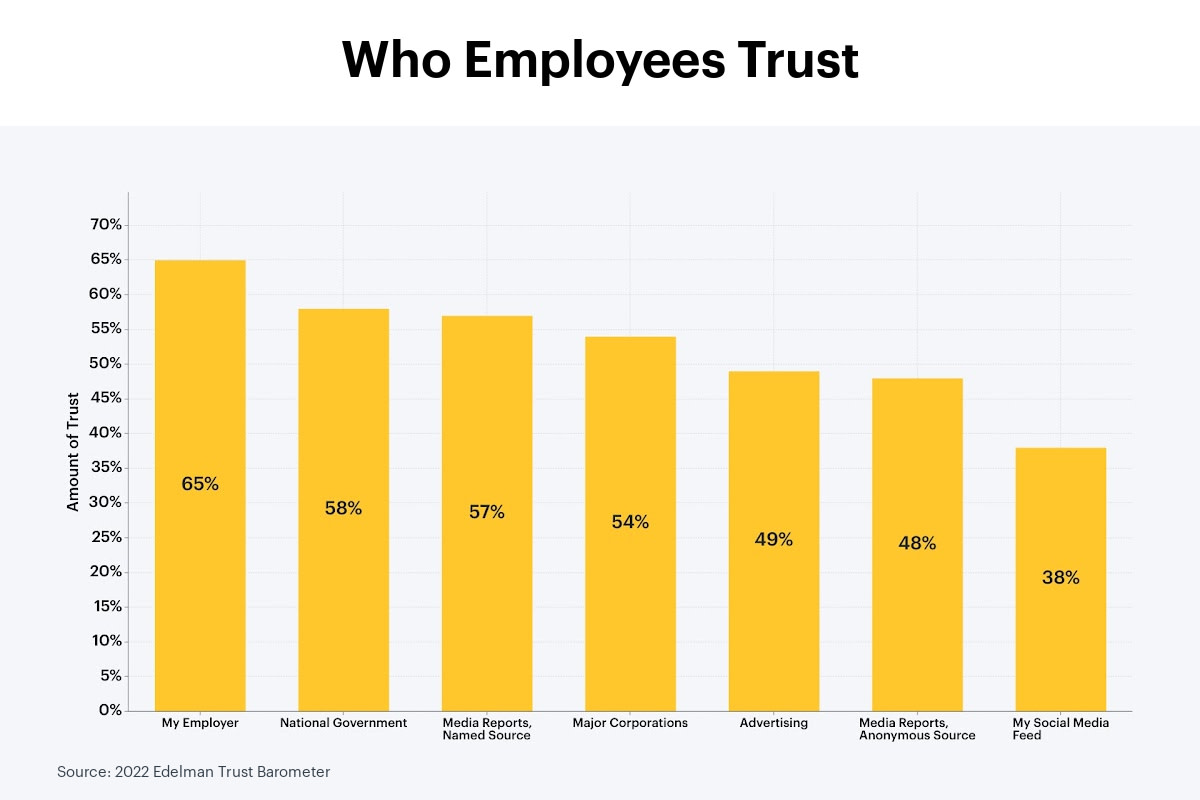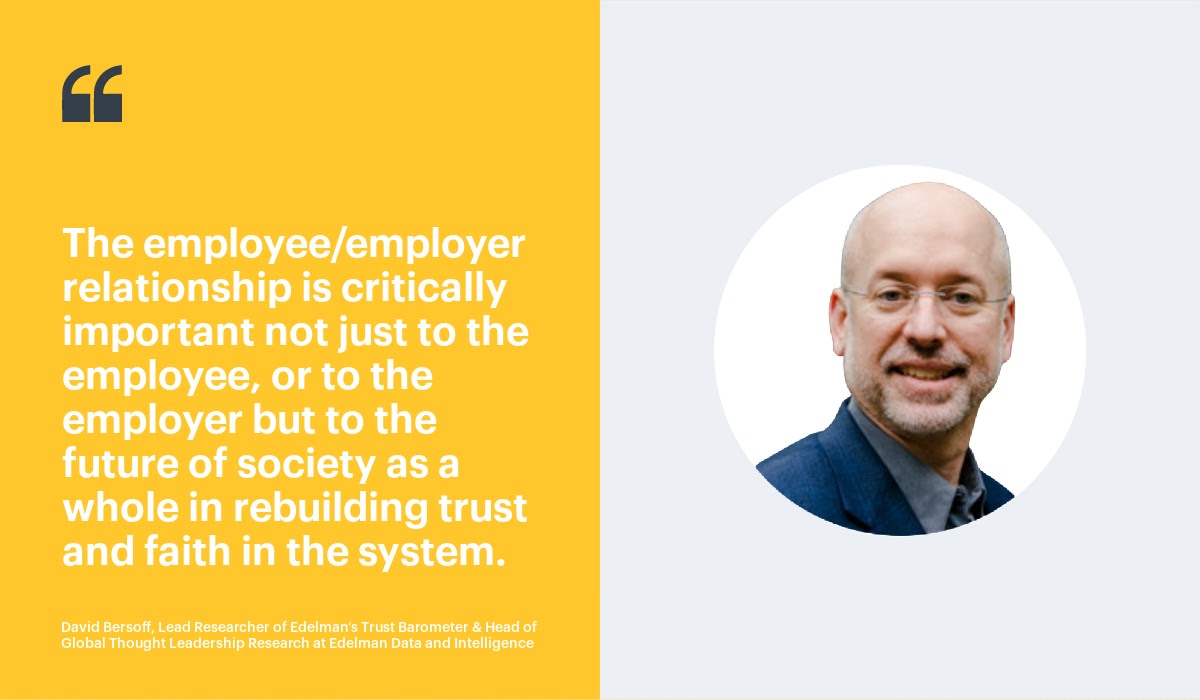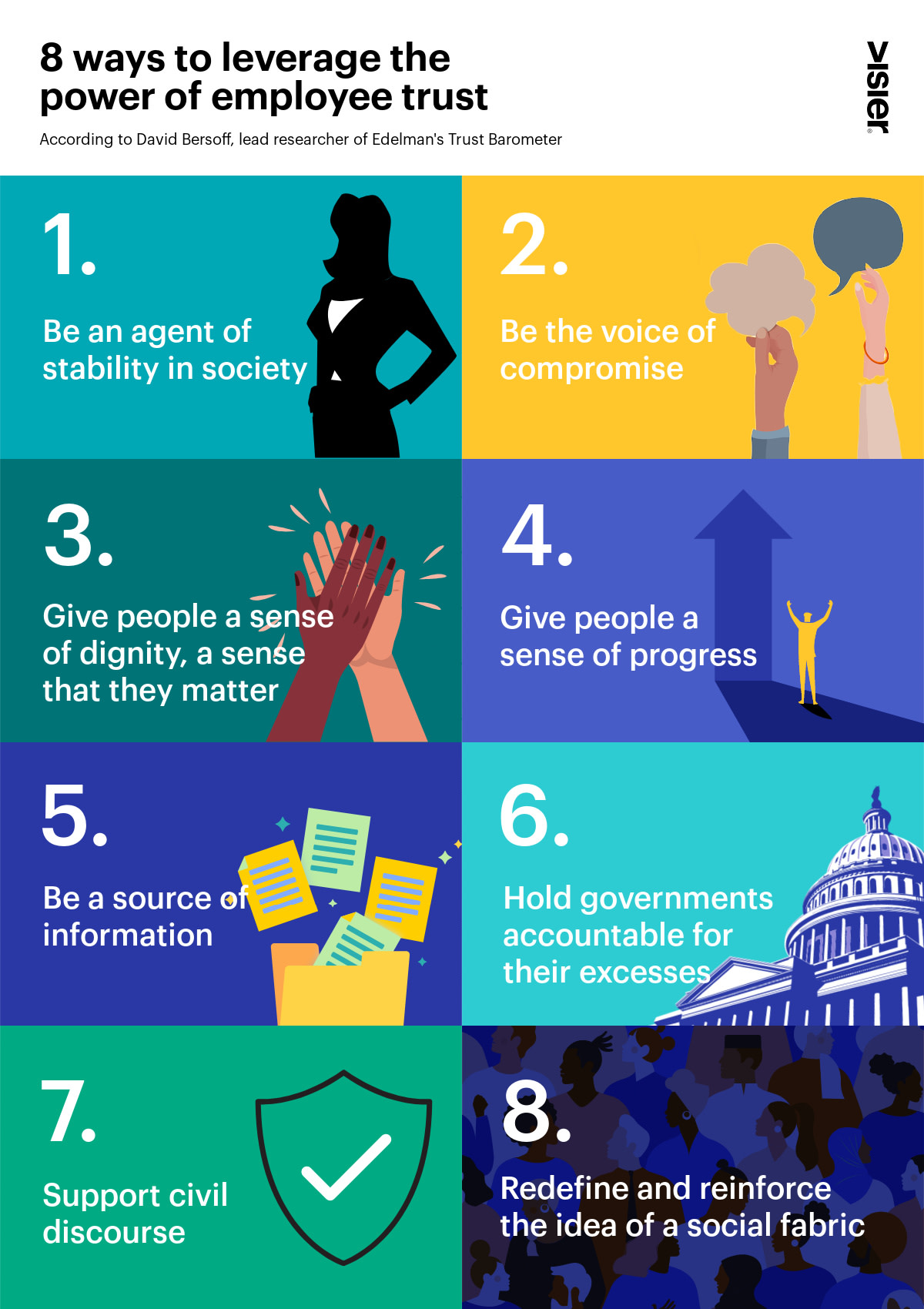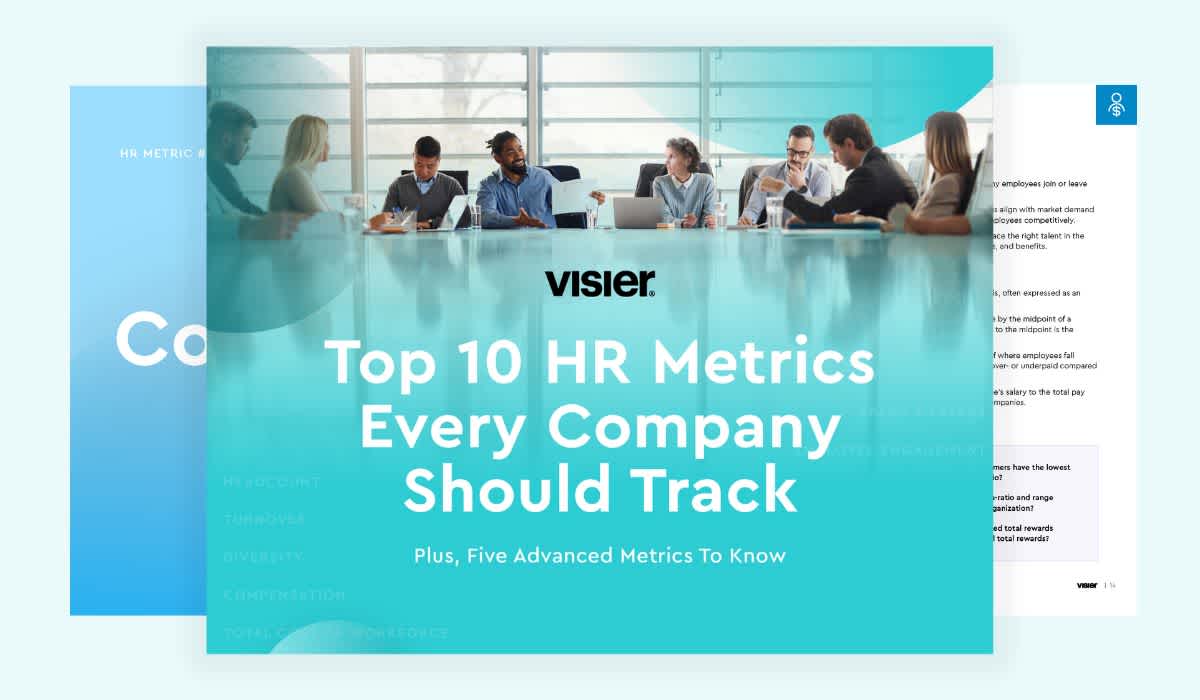How Employers Can Leverage Their Trusted Position With Their Employees
According to the 2022 Edelman Trust Barometer, employers are employees' most trusted source. Here's how employers can leverage it for the good.

Consumer trust is on the wane across a variety of organizations—from the media to government organizations, to large corporations. While many feel confident in saying trust is on the decline, Edelman has been researching trust in organizations since the turn of the century and has proof in their 22nd report: the 2022 Edelman Trust Barometer.
There are some rays of light in this year’s report that represent potential opportunity for employers. Even though corporations have broadly been losing ground in terms of the trust consumers place in them, among their own employees they hold an admirable position.
Who employees trust: their employers, their colleagues, and people like them
“My employer” holds the most trusted position around the world with 77% of employees saying they trust their employers. Scores drop significantly from that point to 61% for business, 59% for NGOs, 52% for government, and 50% for media. Indonesian employers score highest at 91%; US scored at 74% this year, up two points for the 2021 study.
Employees also weighed in on the extent to which they believe information from various sources; the data breaks down like this:
My employer—65%
National government—58%
Media reports, named source—57%
Major corporations—54%
Advertising—49%
Media reports, anonymous source—48%
My social media feed—38%

Who do employees trust? According to the 2022 Edelman Trust Barometer, employers top the list.
Employers have an opportunity to play an important role with their employees by serving as a trusted source of information. Being a trusted source also increases the odds that employees will serve as positive brand ambassadors for the organization with both potential customers and potential employees. That’s particularly true in an environment where, according to Edelman’s research, respondents have less trust for “outsiders” and feel closer to “neighbors and coworkers.” In a highly competitive consumer and employee market, trust can yield meaningful and measurable benefits.
Why do employees trust their employers
It may seem contradictory that employees trust their employers but not corporations in general, but there are some compelling reasons why this may be the case.
David Bersoff is the lead researcher on Edelman’s Trust Barometer and the Head of Global Thought Leadership Research at Edelman Data and Intelligence (Dxl). To understand this data, Bersoff says, it’s important to understand the employer/employee relationship and what makes that relationship unique.
“Your relationship with your employer is personal. You know them. They know you. It’s part of your everyday life,” says Bersoff. He also characterizes the relationship as a “local” relationship and, he says, “trust has become more local as people’s inner circle of trust has narrowed.” The employer, he says, maintains a position in that circle because it’s personal.”
In addition, Bersoff says, employees feel that they have leverage over their employers—that they have the ability to get the employer to engage on certain issues or to have certain policies. They feel like they have a certain degree of empowerment within the context of their employment and their employer.” This, he says, is especially true because of the competition for talent.
The bottom line: “It’s a trusting close proximal relationship with someone you have leverage over who also has the power to make a difference in the world to get things done.” Especially in the United States, he says, trust needs a toehold and employers are that toehold. That relationship, he says, is “critically important not just to the employee, or to the employer but to the future of society as a whole in rebuilding trust and faith in the system.”

So how can employers leverage the value of the trusted position they hold? Bersoff points to eight specific things they can do.
8 ways to leverage the power of employee trust
1. Be an agent of stability in society
As media and government become less trusted, less effective and less influential, Bersoff says that employers have an opportunity to fill the void by getting things done and making positive changes.
2. Be the voice of compromise
The media, government, and politicians are rewarded for fomenting division—for getting people worked up and getting them to distrust other groups. “Votes, clicks, and money these days is more effectively gained by taking an extreme view, sort of stoking the base.” What’s left, he says, is “a void in the center.” Employers can fill that voice by being “the voice of compromise—being cool and objective—representing the middle as opposed to being pulled to the extremes.”
3. Give people a sense of dignity, a sense that they matter
People, Bersoff says, “feel like they’ve been left behind, that they don’t matter, that they don’t count, that no one’s listening to them, that no one cares about them.” Employers providing that sense of dignity and of mattering or being valued can go a long way.
4. Give people a sense of progress
Help them create positive change in society. This goes back to that feeling of “my employer is powerful and has influence and resources that I don’t have.” More and more, people are choosing to work for organizations based on their values, what they care about and what they’re engaged in at a societal level. And they want to be involved in those activities.

5. Be a source of information
Because there is so much distrust in other institutions and because “my employer” has such a high level of trust, employers are well positioned to be a trusted source of information. Not only that, but they can also “help people improve what we call ‘information hygiene’,” Bersoff says.
6. Hold governments accountable for their excesses
Don’t support divisiveness and extremism. “That, I think, is a role that businesses can play in general, but employers have a role there also.”
7. Support civil discourse
“One of the data points we talked about this year is this idea of a culture of distrust, that distrust is a default and there’s no basis for peaceful debate.” But employers have these kinds of debates all the time, Bersoff says, as employees have “different points of view on how we should handle a business problem, or how to allocate resources, or who we’re going to hire, or what new products we’re going to develop.” Employers have an opportunity to help people get back in touch with “the basic skills that we’ve lost in terms of societal discourse and social problem solving.” Those skills, “do currently exist within the employer relationship or within my place of employment.”
8. Redefine and reinforce the idea of a social fabric
We can’t lose sight of the importance of the social fabric that holds people together, Bersoff says. We’ve lost that to a large degree—but there is an opportunity for employers to play a role in becoming polarized by the things that make us different rather than recognizing that we’re more the same than we are different—or that we’re the same on the most important issues. “We can’t lose sight of that and become polarized by the things that do separate us and do make us different.”
Across the years, Edelman highlights statistical evidence of the trends that many consumers intuitively know: the world has become increasingly polarized over the last several years due to both political and pandemic-related issues. Trust in organizations of all kinds is taking a dive because of it. Employees are looking to their employers to lead—but not just to lead, to lead in meaningful ways that can positively impact their communities and society at large. Bersoff believes that employers have that ability—if they choose to use it to further build trust in their organizations and in other institutions.


